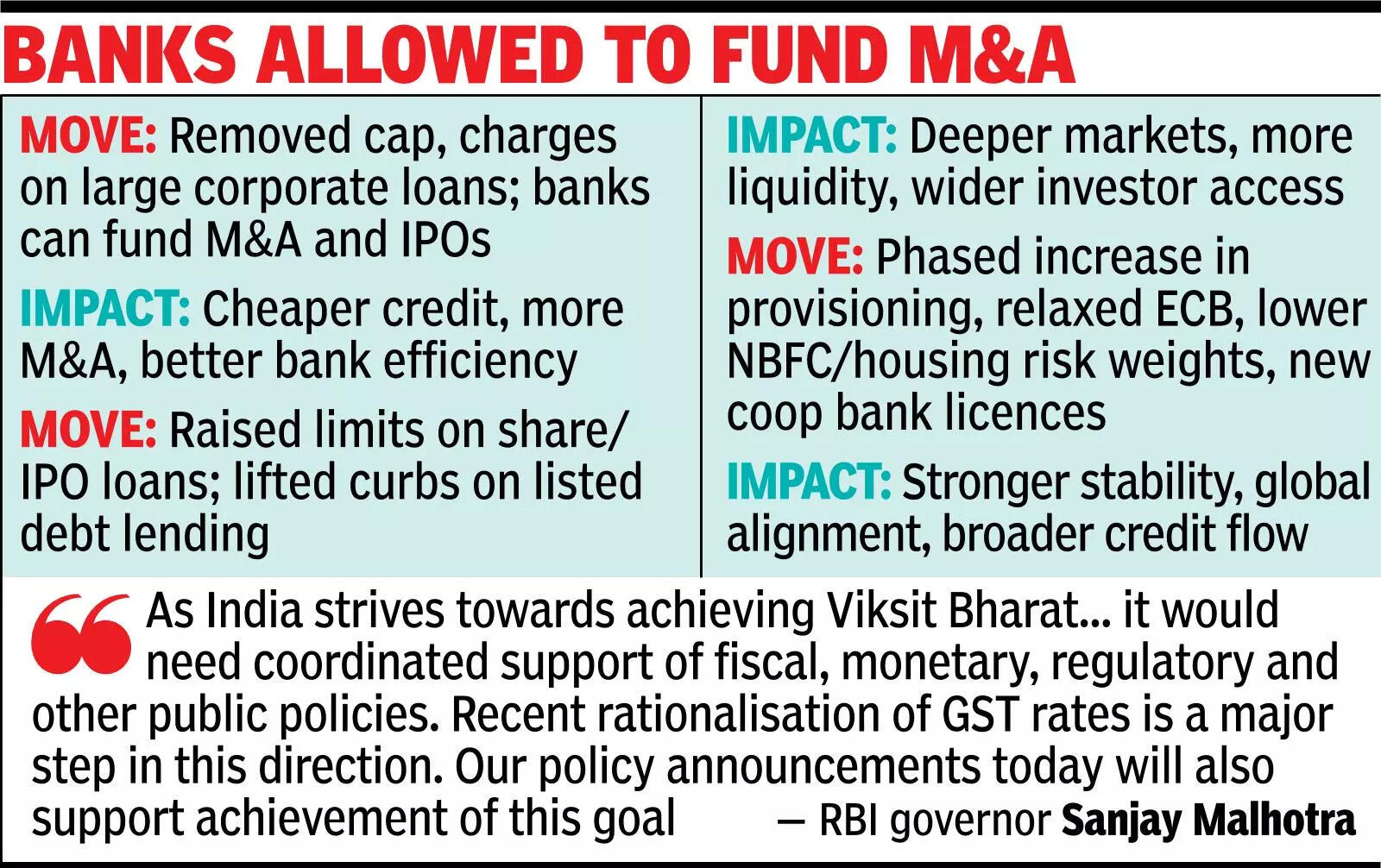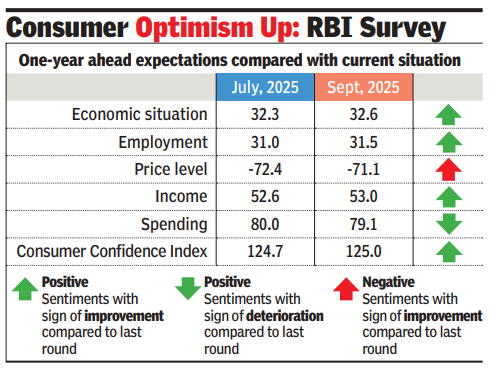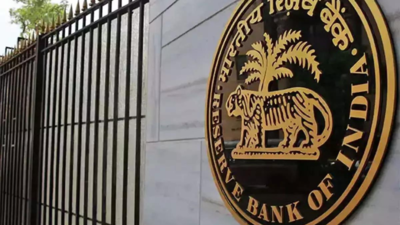
MUMBAI: Reserve Bank of India unveiled on Wednesday its most comprehensive reforms in over a decade, aimed at countering US-driven headwinds and expanding credit to companies, while deepening capital market activity. Banks can now finance mergers and acquisitions, and IPOs more freely, while limits on loans against shares and listed debt securities have been raised.Central to the measures is the easing of borrowing rules for companies with bank loans above Rs 10,000 crore, removing the previous cap and extra capital requirements that made lending costly.Credit concentration will continue to be monitored at individual banks, with system-wide safeguards deployed only if necessary, allowing for cheaper, more accessible corporate credit, improved bank capital efficiency, and broader participation in capital markets.Loans against shares have been increased from Rs 20 lakh to Rs 1 crore per individual, and IPO financing limits have raised from Rs 10 lakh to Rs 25 lakh per person. RBI has also proposed removing the ceiling on lending against listed debt securities, giving banks greater flexibility to support investors. Effective Oct 2025, these changes are expected to expand credit access, improve liquidity, and encourage wider participation in equity markets.

Limits On Loans Against Shares Hiked 5x To ₹1cr
Measures complement govt’s reforms: Guv Indian banks were hitherto barred from directly funding acquisitions through leveraged buyouts, or promoter stake purchases due to RBI curbs on share-based lending, forcing corporates to tap NBFCs, alternate investment funds, bonds, or foreign lenders, with rare exceptions under insolvency law. They could finance projects, capex, or working capital, but not equity takeovers, nor use target shares as collateral. Now, RBI has lifted this prohibition, creating a formal risk-managed framework that lets banks fund mergers, acquisitions, and corporate takeovers.According to Katalyst Advisors’ partner Binoy Parikh, allowing banks to participate in acquisition financing would be a structural shift for India’s credit markets. “For decades, Indian acquirers have been forced to rely on expensive private credit, NBFCs, or offshore lenders to fund takeovers, while domestic banks watched from the sidelines. Allowing banks into this space not only lowers the cost of capital for Indian businesses but also plugs a strategic gap where our banking sector has lagged global peers,” Parikh said. Leveraged buyouts, which involve using bank loans to finance M&As while offering the target company’s assets as collateral — have been widely used in the West but have been restricted in India.

Consumer optimum up
A report by SBI said that in 2024, M&A deals were valued at over $120 billion (around Rs 10 lakh crore). Assuming a debt component of 40% of M&A and 30% of this could be financed by banks, this translates into a potential credit growth of Rs 1.2 lakh crore.Announcing the measures, RBI governor Sanjay Malhotra said the measures complemented govt’s reform of GST and formed part of a coordinated effort across fiscal, monetary, regulatory, and other public policies to support the economy and advance the goal of a developed nation.Banks will phase in the expected credit loss framework for provisioning, replacing the incurred loss model with a glide path to minimise disruption. Draft Basel III credit risk guidelines and revised rules on forms of bank business and investments will align banks with global standards while providing operational flexibility. External commercial borrowing norms have been relaxed, broadening the eligible borrower and lender base, easing end-use restrictions, and simplifying reporting. Risk weights for NBFC infrastructure lending and housing finance have been lowered to reflect the lower risk of operational projects, and licensing for new urban cooperative banks will resume after a two-decade pause.Lending limits for REITs, InvITs, and listed debt securities have been expanded, accompanied by a principle-based framework for capital market intermediaries. Over 250 regulatory instructions have been consolidated into master directions to reduce compliance costs. Transaction account restrictions have been eased. Exporters will get extended timelines for repatriation from IFSC accounts, merchanting trade transactions will allow a six-month forex outlay, and special rupee vostro accounts can invest in corporate bonds and commercial papers. The Integrated Ombudsman Scheme will now cover state and district cooperative banks.








